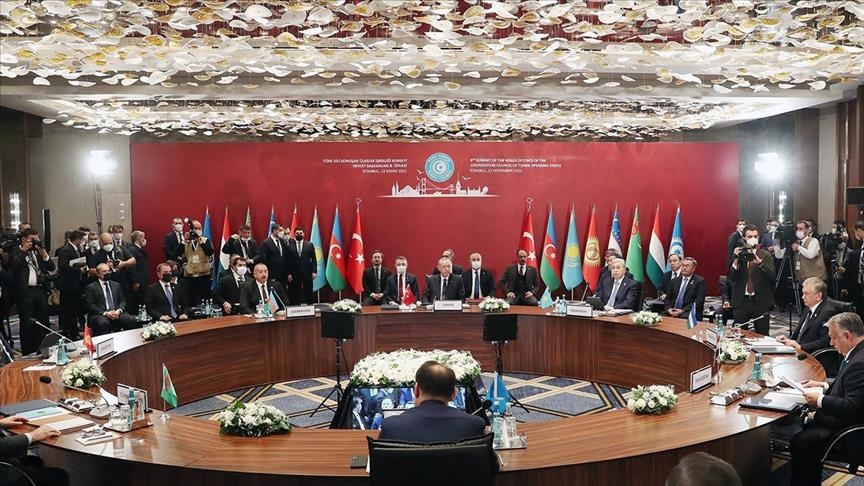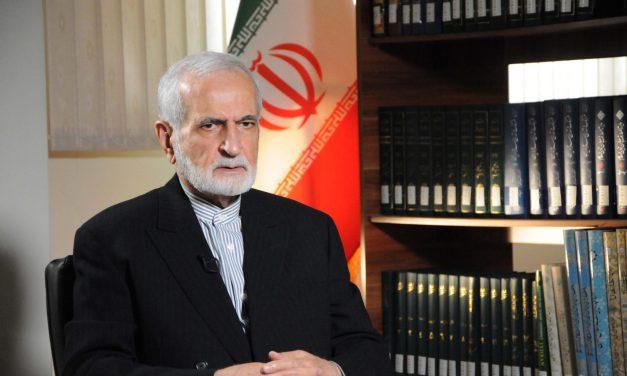In that meeting, Uzbekistan took over the presidency of the new term of the organization from Turkey. Turkey took over the chairmanship of the organization from the Republic of Azerbaijan at the meeting of heads of states of Turkic-speaking countries held in Istanbul on November 12, 2021. Before changing the name of the Organization of Turkic-Speaking Countries in 2021, a council named “Council of Turkic-Speaking Countries” was formed in October 2009 with the participation of Turkey, Azerbaijan, Kazakhstan, Kyrgyzstan and Uzbekistan. At that time, Hungary was also present as an observer member. The Organization of Turkic-speaking countries, which is headquartered in Istanbul, Turkey, was formed with an aim of developing cooperation among Turkic-speaking countries in many fields, including education and trade.
Undoubtedly, one of the achievements of this summit for Turkey and Northern Cyprus is the acceptance of the Turkish Republic of Northern Cyprus as an “observer member” in the Organization of Turkic States, which was welcomed by Ersin Tatar, the President of the Turkish Republic of Northern Cyprus. He expressed his appreciation for Turkey’s support in this regard. He stated that Turkey’s diplomacy made the Turkish Republic of Northern Cyprus to be accepted as an ‘observer member’ in the Organization of Turkic States. ‘Taking heart from this positive development, our honorable struggle will continue’. Emphasizing the importance of the participation of the Turkish Republic of Northern Cyprus in an international organization, he said his government has obtained such a title for the first time in an international organization as the Turkish Republic of Northern Cyprus and with its legal name. ‘This is a turning point that will be recorded in the pages of history’.
Turkish President Erdoğan also stated in that meeting that granting of observer membership to the Turkish Republic of Northern Cyprus was an important step and other steps will be taken in Northern Cyprus, including the improvement of infrastructure and construction of new “Parliament” buildings and the Presidential Palace. ‘We believe all such steps are taken to improve the situation in Northern Cyprus. We have shown that the Turkish Cypriots, who are an integral part of the Turkic world, are not alone. I wish this historic decision will be useful for all of us, especially the Turkish Cypriots’.
Turkey claims that member countries should create a “concept of common security” among themselves and expand cooperation. The faster implementation of the Turkish Investment Fund in that organization is beneficial and the financial opportunities provided through that fund strengthen cooperation and will accelerate activities.
Erdoğan stated in that meeting that unity is getting stronger day by day in the Organization of Turkic states. A series of agreements have been signed that lay the infrastructure for cooperation on a wide spectrum from trade to economics, from cultural to environmental issues. By changing the name of the Council of Turks and with the signed protocol, the need for changes in the Nakhchivan Agreement was removed. ‘In this summit, we also talked about common steps we can take in transportation, media, culture and tourism projects. We established the Turkish Investment Fund in order to strengthen our solidarity, especially in the financial field. The opportunities provided by the fund will further strengthen our cooperation and accelerate our activities’.
The President of Azerbaijan also claimed in the meeting that Azerbaijan has always contributed to the close unity of the Turkic World and is committed to its unity. He added that starting from the Nakhchivan summit in 2009, the organization has gone through a great development path. The Turkic World covers a vast geography of more than 200 million people and has economic potential, energy resources, transportation routes, and modern military capabilities. The Turkic World is one big family. Considering each other’s national interests, we must continue mutual support and solidarity. In addition to the political, economic, commercial, cultural, transportation, energy, digital transformation, agriculture, tourism, we must activate our cooperation in the fields of security, defense, and defense industries. The time has come to permanently focus on issues such as protecting the rights, security and national identity of our compatriots who live outside the member countries of the Organization of Turkic States and preventing their transformation within the framework of the organization.
As expected, the spokesperson of the Justice and Development Party reacted to the criticisms of the European Union regarding the acceptance of the membership of the Turkish Republic of Northern Cyprus in the Organization of Turkic States and stated that the statement of the European Union following the acceptance of the membership of the Turkish Republic of Northern Cyprus as an observer member in the Organization of Turkic States is an unfair and hypocritical statement. He added that the European Union is drawn towards the incompatible policies of Greece and the southern part of Cyprus in the context of the Cyprus issue. Turkish Cypriots are respected members of the international community. Acceptance of the Turkish Republic of Northern Cyprus as an observer member of the Organization of Turkic States is very correct and natural. The position of the European Union in the direction of nullifying the Turkish Republic of Northern Cyprus is historically and politically unprincipled.
As was expected, Ankara’s decision to accept the Turkic part of Cyprus as an observer member of the Organization of Turkic States sparked Greece’s reaction. From the point of view of Athens, the statements of the Turkish authorities regarding the acceptance of the Cypriot regime as an observer member in the Organization of Turkic States are condemned, and any attempt to promote the fake regime is considered as a clear violation of international law and resolutions 541 and 550 of the Security Council. Greece supports efforts to achieve a just and sustainable solution to the Cyprus issue based on UN Security Council resolutions, European Union rights and a bi-communal and bi-regional federation.










0 Comments